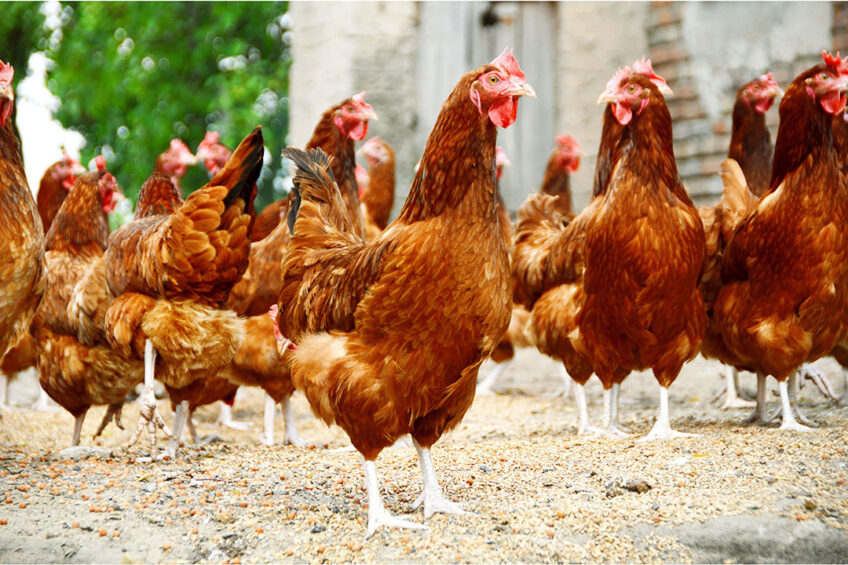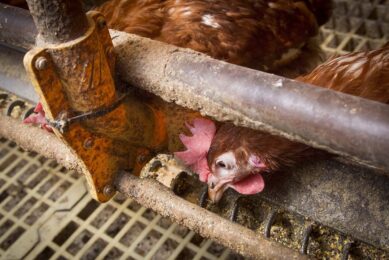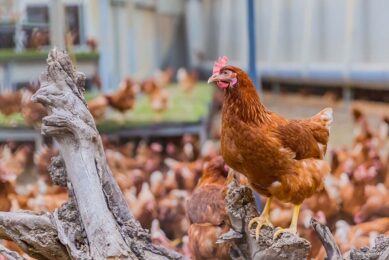Organic poultry to benefit from high methionine grain

A joint US academia and government study is set to usher in new commercial field corn hybrids with high levels of the amino acid, methionine.
The advance is seen as welcome news for organic poultry producers whose birds require dietary formulations of the amino acid to ensure optimal growth, health and production of both meat and eggs.
Methionine is one of 9 essential amino acids and one of only 2 that contain sulphur. It helps kick-start the synthesis of protein and is an important component of many tissues, including bone, muscle, ligaments, organs, skin and feathers. Methionine also underpins important metabolic, digestive and immune system functions.
Supplementation for free-range & organic birds
Free-range birds can naturally acquire methionine from eating worms and other insects but supplementing their diets with methionine in corn-based feeds is seen as necessary to ensure the birds get adequate amounts of the amino acid.
At present, organic producers in the US have had to seek a federal regulatory exemption that permits use of 2 pounds of synthetic methionine per ton of feed for chickens and 3 pounds per ton for turkeys, duck and other types of poultry. But this project, among other research, is looking to find natural alternatives whose cost and availability promise to supplant the need for synthetic methionine.
Supplementation through corn
Corn is a major ingredient in current feed rations but commercially grown hybrids contains very little methionine. But scientists have found there are sources of variability for the trait in germplasm collections that can be teased out with the right tools.
Paul Scott, Agricultural Research Service plant geneticist, and colleagues have been looking to combine the use of 2 conventional plant breeding technologies – doubled haploid induction and recurrent selection – as transgenic crop varieties are not allowed in organic production.
Using these methods, and as reported in Crop Science, they developed 16 lines of inbred corn whose methionine grain levels equalled, and in one case, surpassed, that of B101, a hybrid that has been shown to be a useful benchmark of comparison because of its naturally high concentrations of methionine.
“B101 usually measures about 0.29g of methionine per 100g of grain, and our best lines have about 0.37g per 100g, said Scott, with the ARS Corn Insects and Crop Genetics Research Unit in Ames, Iowa.
In addition, some of the inbred lines have also shown considerable genetic diversity in certain agronomic traits were evaluated in field trials – plant height, flowering date, disease resistance and orange-coloured kernels among them.
“It will be important to test these lines in hybrid combinations and in different environments to understand how stable the trait is and what their potential yield is. Also, we’d like to combine high methionine with other traits of value to organic poultry producers. Orange grain is one we’re working on now, as well as the ability to exclude transgenic pollen. Ultimately, we’d like to develop corn that can provide a complete diet with no supplementation,” he added.
The report was co-authored with representatives from the Practical Farmers of Iowa, Iowa State University, and the University of Khon Kaen, Thailand. – Development of maize inbred lines with elevated grain methionine concentration from a high methionine population – Hintch – 2023 – Crop Science – Wiley Online Library
 Beheer
Beheer











 WP Admin
WP Admin  Bewerk bericht
Bewerk bericht